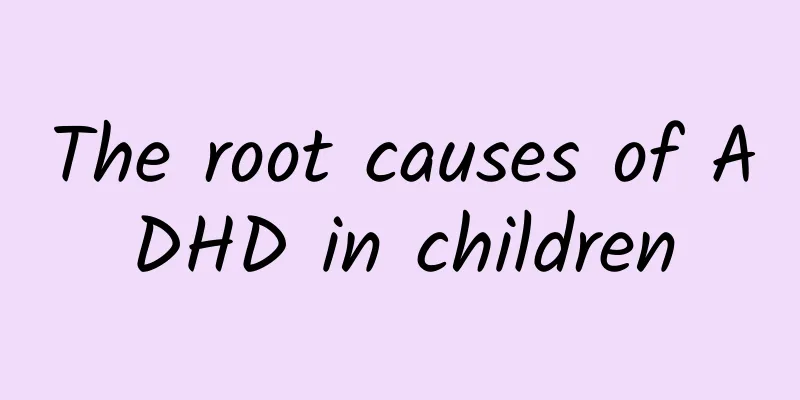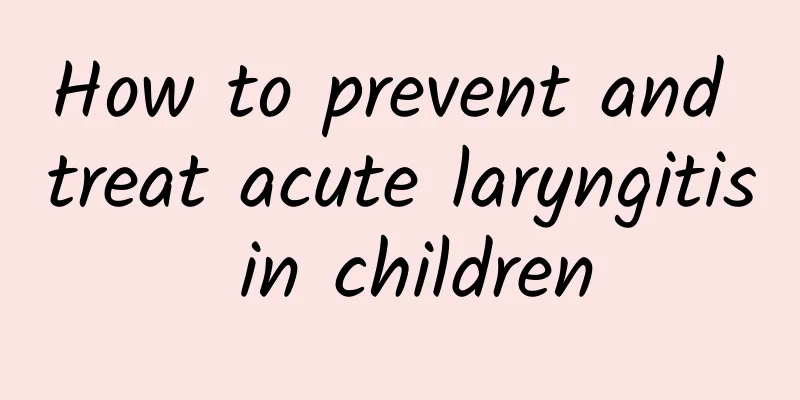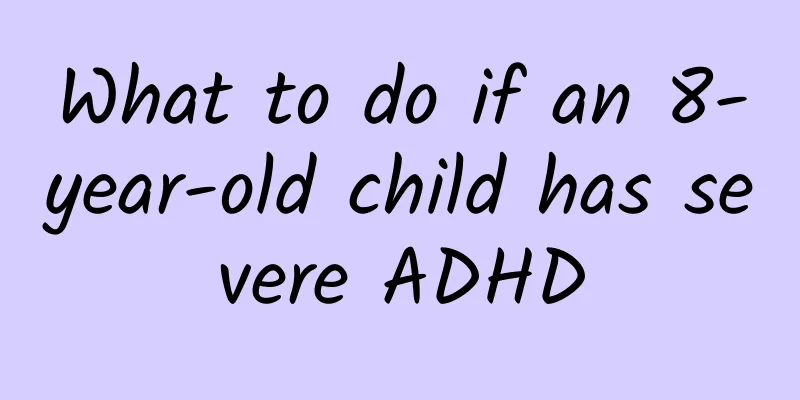The root causes of ADHD in children

|
When ADHD appears in children, it will cause hyperactivity disorder in children. Many children usually have poor concentration and mental retardation, which seriously affects their physical health. People need to adjust as soon as possible and pay more attention to their health care matters. What is the root cause of ADHD in children? 1. Genetics Family studies, twin studies, and foster child studies support that genetic factors are an important risk factor for ADHD, with an average heritability of approximately 76%. 2. Neurotransmitters Neurobiochemistry and psychopharmacology studies have found that there is an imbalance of neurochemical transmitters in the brain, such as low dopamine and norepinephrine function and decreased 5-HT function in the patient's blood and urine. Some scholars have proposed the dopamine, norepinephrine and 5-hydroxytryptamine (5-HT) hypothesis of ADHD, but no hypothesis can fully explain the cause and mechanism of ADHD. 3. Neuroanatomy and Neurophysiology Structural magnetic resonance imaging (MRI) found abnormal development of the frontal lobe and asymmetry of the bilateral caudate nucleus. Functional MRI also found that ADHD patients have brain function defects, such as hypofunction of the frontal lobe, abnormal activation of the frontal lobe, especially the prefrontal lobe, basal ganglia, anterior cingulate cortex, cerebellum and other parts. 4. Environmental factors Including prenatal, perinatal and postnatal factors. Among them, risk factors related to pregnancy and delivery include smoking and drinking by mothers of ADHD patients, premature birth of children, postpartum hypoxic-ischemic encephalopathy and thyroid dysfunction. Childhood diseases related to the occurrence of ADHD include viral infections, meningitis, encephalitis, head injuries, epilepsy, toxins and drugs. More controversial factors include malnutrition, diet-related allergic reactions, excessive intake of beverages or foods containing food additives, iron deficiency in children, elevated blood lead levels, and reduced blood zinc levels are related to the occurrence of ADHD, but the evidence is currently insufficient. 5. Family and psychosocial factors Negative factors such as parental discord, family breakdown, improper parenting methods, bad parental personalities, mothers suffering from depression, fathers with impulsive, antisocial behavior or substance addiction, family financial difficulties, crowded housing, separation from parents, abuse in childhood, and improper educational methods in school may all serve as triggers for the onset of the disease or reasons for the persistence of symptoms. There are many adverse factors that cause children's ADHD. We need to pay attention to family health care to avoid discord between parents, and pay attention to correct education methods to avoid depression. We need to pay attention to comprehensive conditioning, mental changes, reasonable health care, environmental changes, and effective conditioning. |
<<: There are several ways to treat ADHD
>>: Key points to note when preventing mumps
Recommend
What foods are good for children with diarrhea
During diarrhea in children, you can choose elect...
The characteristic signs of patent ductus arteriosus in children are
Patent ductus arteriosus (PDA) in children is usu...
Can hand, foot and mouth disease be transmitted to pregnant women?
Can hand, foot and mouth disease be transmitted t...
How to distinguish between wheezing and breathing in children? What are the causes of wheezing and breathing in children?
The difference between wheezing and breathing in ...
What to eat for a baby's cough? Teach you 4 dietary methods to treat your baby's cough
After the baby has a cough, he can eat pears stew...
How long does it take for neonatal jaundice to completely subside?
Neonatal jaundice is a concern for many new paren...
How much does it cost to treat eczema in children?
Eczema is a common allergic skin disease in our l...
Do you know the details of daily prevention of Kawasaki disease?
Do you know the details of daily prevention of Ka...
Cytomegalovirus detected in infant pneumonia
If cytomegalovirus is detected in infant pneumoni...
Early prevention measures for kidney disease in children
Early prevention measures for kidney disease in c...
What are the symptoms of allergic cough in children? How to prevent allergic cough in children?
Cold air, animal hair, etc. may induce allergic c...
What can children with pneumonia eat?
I believe we all know that neonatal diseases are ...
How to take care of children with acute laryngitis
How should children with acute laryngitis take ca...
Which drugs can cause ADHD?
In life, when many children get sick, their paren...
How to avoid neonatal jaundice? Pay attention to these to prevent neonatal jaundice
1. There are too many red blood cells in the newb...









